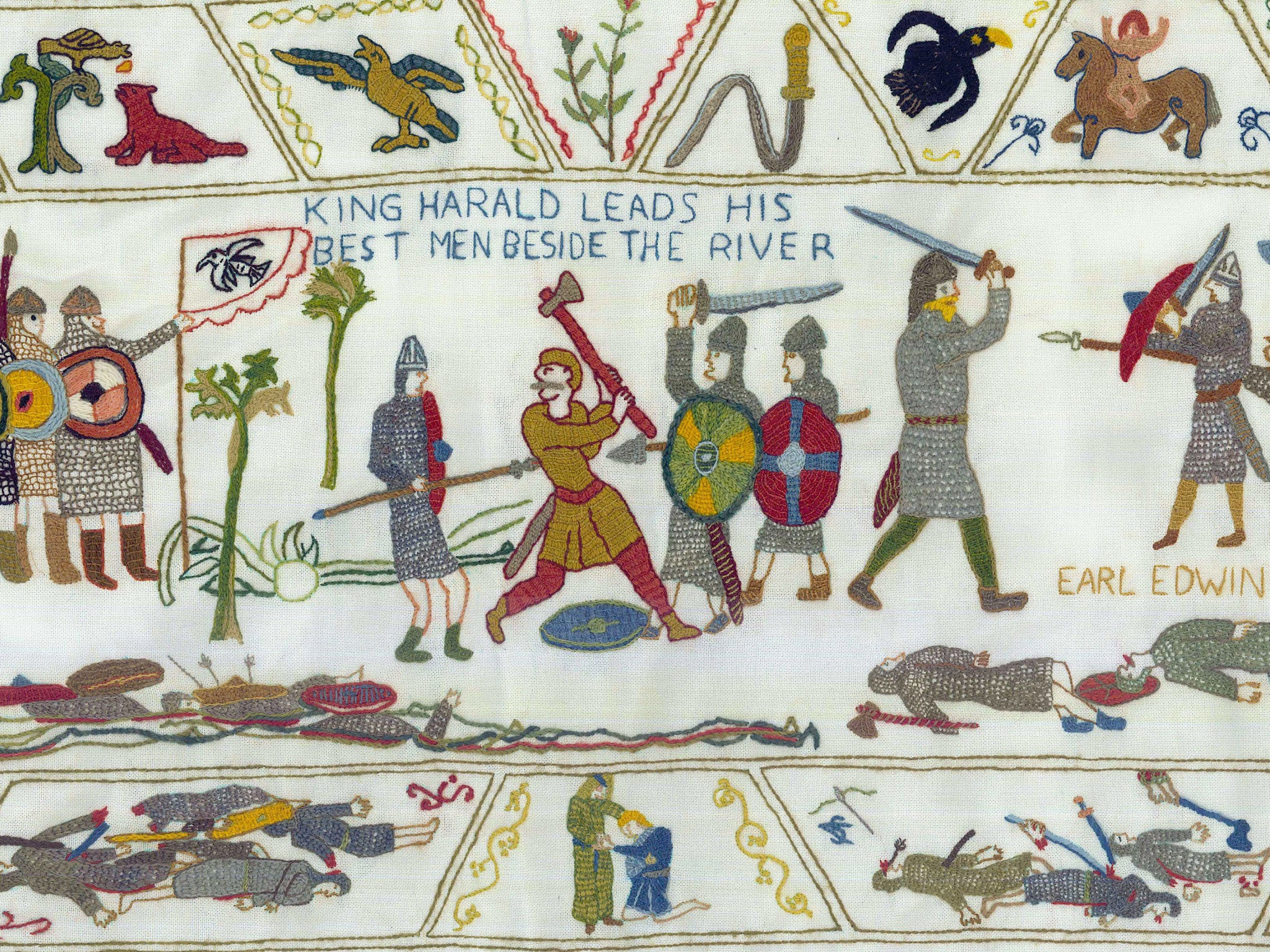The Battle of Fulford: War breaks out over 'forgotten' Yorkshire battlefield
Local historians say it's the site of the curtain-raiser to Hastings in 1066. The council wants to build hundreds of houses on it

Combatants are squaring up to do battle over the fate of a Yorkshire field more than 1,000 years after they say an earlier battle was fought there that helped to change the course of British history. Rival groups have issued a call to arms over the future of what some historians claim is the true site of the "forgotten" Battle of Fulford in September 1066. Local historians are fighting a rearguard action over developers' plans to build 600 homes on a field near York which they say is the site of the historic battle.
The Battle of Fulford is where an invading Viking army defeated an Anglo-Saxon force led by the northern earls, Edwin and Morcar. Historians say the battle is important because the defeat forced the Anglo-Saxon king, Harold Godwinson, to march his army north to fight and defeat the invaders at the Battle of Stamford Bridge five days later. Although victorious, Harold's forces suffered losses at Stamford Bridge and were exhausted after the march, and the campaign in the north diverted the king's attention away from the south coast, where William of Normandy launched his invasion.
As a result, King Harold's weakened and divided army was subsequently defeated at the Battle of Hastings three weeks later. Some have described the period from Fulford to Hastings as the watershed between the end of the Viking and Saxon age and the beginning of the Normans.
Chas Jones, of the Fulford Battlefield Society, who has extensively investigated the Yorkshire site with other enthusiasts, says they are convinced this is where the battle was fought. They have found what they believe are "Norse arrows", and are convinced that a full investigation of the area will reveal further treasures. "English history would have been substantially different but for the Battle of Fulford and the northern campaign. It is not overstating it to say this is a Pompeii moment for battlefield archaeology," Mr Jones said, a reference to his belief that many more perfectly preserved combat relics lie waiting to be discovered. "The tools and weapons have been preserved in the mud because there was flooding straight after the battle," he said.
On Thursday, City of York Council is expected to make a decision that will allow work on the housing development to go ahead immediately – leading to a tarmacked access road covering the disputed ground. The local parish council has written to City of York Council asking it to delay any decision, with the Council for British Archaeology stating that it would be "unwise to make a decision that affects the potential to determine its archaeological significance".
However, locals have been incensed by the failure of English Heritage to come to their aid. English Heritage argues that the site, now called Germany Beck, is unproven as being the place where the battle took place and it has refused to put it on its Register of Historic Battlefields. The arrowheads found at the scene cannot be dated to the 11th century, it says. English Heritage says it is reviewing its decision, but critics say it is "too little, too late" to save the site, as it will be months before it comes to a decision.
Join our commenting forum
Join thought-provoking conversations, follow other Independent readers and see their replies
Comments
Bookmark popover
Removed from bookmarks